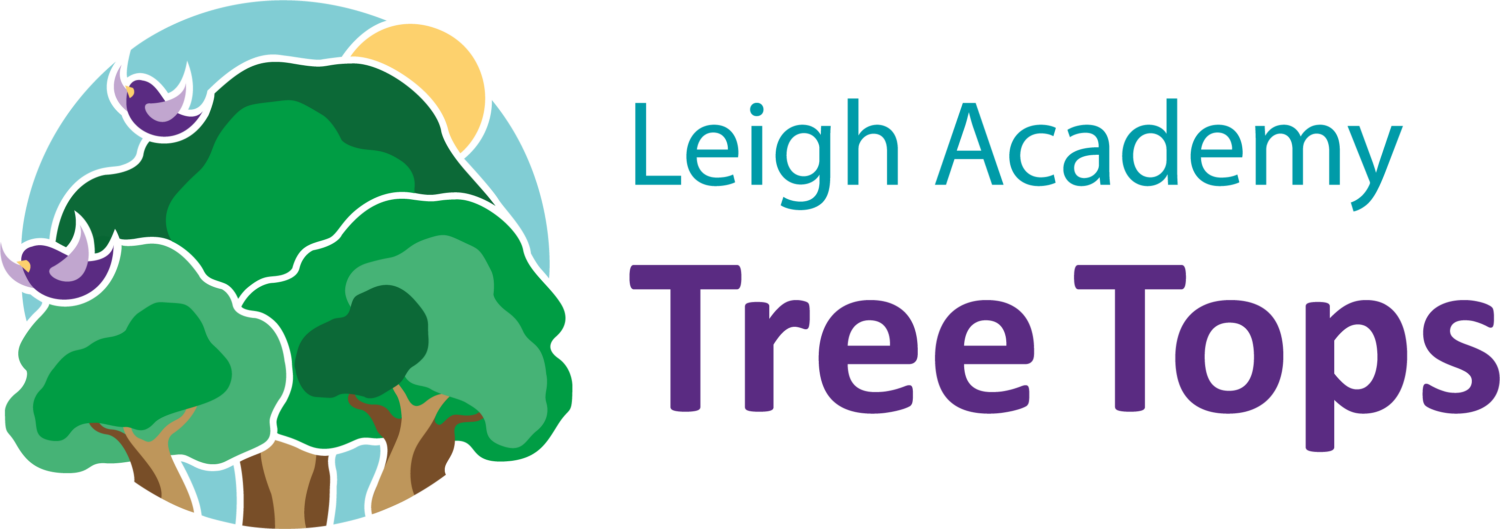At Leigh Academy Tree Tops, a rich and engaging RE Curriculum immerses our pupils with enquiry and exploration opportunities. Pupils have the freedom to express their curiosity, equipping them for life in our growing multicultural society. It promotes respect, open-mindedness towards others with different faiths and beliefs and encourages pupils to develop their sense of identity and belonging, while gaining a deeper understanding and knowledge of others around them. This foundation will enable pupils to thrive in all areas of their life.
Aims
RE provides our pupils with valuable insights into the diverse beliefs and opinions held by people. It helps with their own personal development and supports an understanding of the spiritual, moral, social and cultural questions that may arise at any given time.
- enable pupils to encounter Christianity as the religion that shaped British culture and heritage and influences the lives of millions of people today;
- enable pupils to learn about the other major religions and their impact on culture and politics, art and history, and on the lives of others
- develop understanding of religious faith as the search for and expression of truth;
- contribute to the development of pupils’ own spiritual, moral, social and cultural understanding
- exploring and enriching their own faith and beliefs.
- The curriculum promotes opportunities for pupils to engage, enquire and explore, evaluate and express. Planning is structured to promote British values through developing understanding of other cultures and beliefs, treating people of all faiths equally and nurturing tolerance for other people’s opinions.
- The overarching aim of the school’s RE curriculum is to promote and embed Christian and British values. Pupils develop and embed an understanding and empathy of other cultures and beliefs, treating people of all faiths and backgrounds equally and nurturing tolerance for other people’s opinions.
- Pupils have access to a range of resources for a variety of different religions. We encourage a hands-on approach so that children are able to see how artefacts are used in different religions and supported to understand their value.
- Planning across the phases ensures that children have opportunities to visit religious institutions across different faiths.
- Major Christian festivals are celebrated and reflected upon. Children are actively involved in specific collective worship sessions and activities regarding that festival. Opportunities are provided within phase planning to experience, reflect and discuss aspects of those festivals and gain an understanding of its importance to Christians and themselves.
- Learning is adapted and tailored to meet the needs of all pupils, including those with SEND, through adaptive teaching; including guidance from the EEF (Education Endowment foundation). Educators incorporate explicit instruction, cognitive and metacognitive strategies, scaffolding, flexible grouping and use of technology into daily classroom practice to ensure access for all.
We aim to create learners who feel confident to be themselves and fulfil their potential without fear. Our RE curriculum provides our pupils with an understanding of how Christianity has shaped British culture and heritage and influences the lives of millions of people today. By learning about other major religions, it provides an insight into their impact on culture and politics, art and history, which allows them to prepare for life in modern, multi-cultural Britain. Throughout our RE curriculum we aim to promote the development of pupils’ spiritual and philosophical convictions, exploring their own faith and beliefs as well as showing respect and understanding for different faiths, opinions and values. At the end of the year, children are expected to apply the knowledge that they have gained through RE lessons to their daily life both in and out of school.
Pupils are able to:
- talk enthusiastically about their knowledge of religion
- reflect on their learning and are able to confidently articulate their views, opinions and questions
- articulate their learning, views and questions through a variety of mediums
- listen to and be considerate of the views and beliefs of others
- articulate well about the need to be respectful of different beliefs
Teacher’s subject knowledge ensures that all pupils have a good understanding of how to apply learnt skills to life in modern Britain so that they become compassionate, positive citizens. At the end of each year, we expect children to have achieved Age Related Expectations (ARE) for their year group. At the end of the key stage curriculum, children should be able to apply their knowledge and skills to life experiences, both within and outside school.


